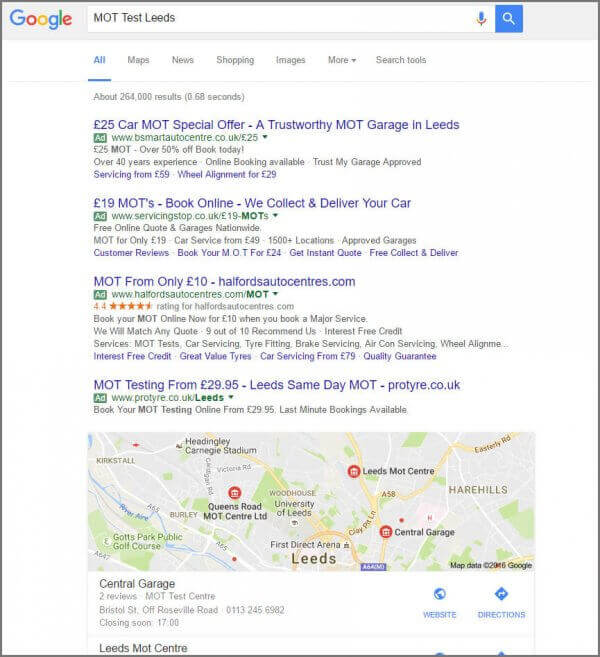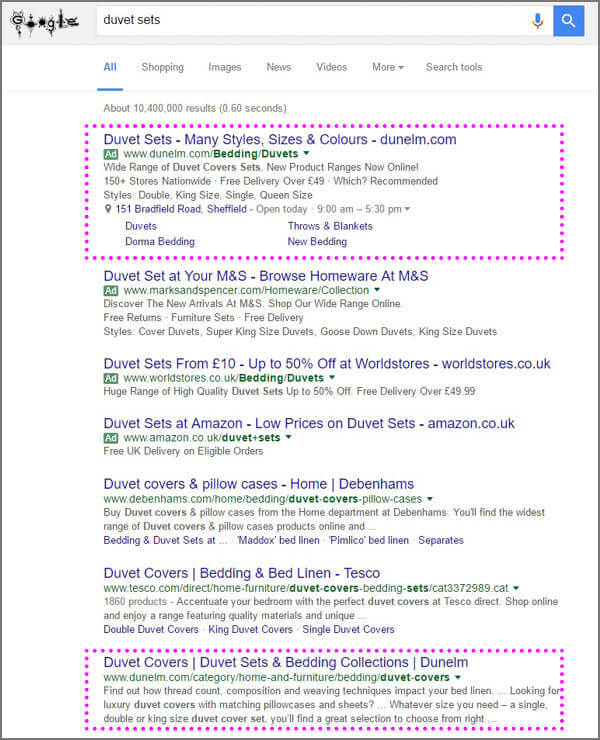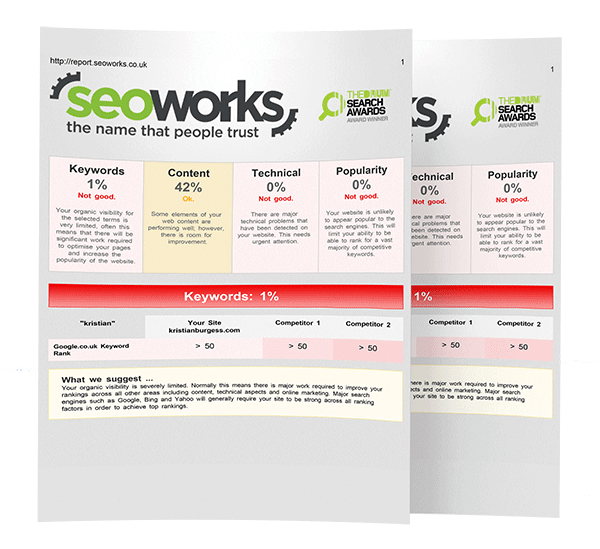SEO vs PPC: What is the best?
SEO vs PPC – it’s a big debate amongst marketers. Unfortunately, though, there is a misconception that SEO and PPC teams are somehow working against one another, each trying to persuade marketing heads to allocate more of the budget towards their area of expertise.
There was a time when The SEO Works only did SEO. Hence the name. We were dedicated – and still are, for that matter – to being known as one of the industry’s best SEO agencies for SMEs in the UK. However, to achieve this accolade, it soon became apparent that we could no longer look at SEO in isolation. SEO and PPC are like two peas in a pod – better together.
It’s our belief that to maximise your online potential, it shouldn’t be a choice between these two channels. In fact they are much better together – this article goes some way to explaining why the two should be inseparable. If your company is intent on converting as many visitors as possible within a given budget, the two must be properly integrated.
SEO vs PPC – Maximising online visibility
Now, we’re definitely not against the idea of adjusting PPC spend once organic listings hit the top three results – striving to make all search channels work together as efficiently as possible is what we’re all about. However, the idea that you can pretty much turn the tap off at this point is completely misguided.
With up to four paid ads coming before organic results for the most competitive keywords, combined with the recent introduction of expanded text ads, paid ads now dominate above the fold search results. And if you think about the mobile experience, paid ads dominate even more! For commercialised localised search queries showing four paid ads and a local three pack, organic results are completely hidden across almost all screen resolutions.

To add to this, research has shown that for keyword searches with a high commercial intent (keywords where the searcher is explicitly looking to buy a product or service) paid search listings attract more clicks than organic search listings – to a margin of 2:1. This is a great example of how the different channels need to be properly considered to match the point at which the user is in the sales process.
Even when a user does decide to go for organic listings, making sure your website also features in the paid ad positions can be effective for creating the sense that your company is more prominent and thus more credible than competitors, helping to improve overall click-through rates and leading to an overall better return on investment.

SEO vs PPC: Bolster results through the sharing of critical data across channels
Keywords are the bedrock of any successful campaign. However, due to organic search terms now largely being ‘not provided’ by Google, determining the terms that organically bring users to your site is restricted. To counteract this, SEO teams can benefit massively by utilising the Search Terms report in Adwords. Although certain thresholds need to be reached in terms of data collection for the terms to start appearing in the report, the information collected can be invaluable in terms of deciding what keywords to prioritise when generating content aimed at the user.
Furthermore, the speed at which an Adwords campaign can be setup and amass data can quickly assist your SEO campaign to influence which keywords to target, protecting against that sinking feeling that you’ve targeted sub-optimal phrases six months into a campaign. For instance, split testing different PPC headlines and descriptions can give a quick indication of the exact variables to utilise in such things as a site’s heading, title and description tags. Moreover, analysing the terms that attracted the most PPC conversions and integrating them properly into an SEO campaign can work wonders for the bottom line.
SEO vs PPC: Help minimise bounce rates
It needn’t just be the SEO team that benefits from this relationship, though – no one likes being used. One of the three factors determining each keyword’s Quality Score is landing page experience. Therefore, liaising with in-house content writers whenever a certain page you’re directing an Ad towards is showing a landing page experience below average helps improve Ad Rank and so bring down the cost-per-click. To boot, ensuring the page clearly matches the message behind the ad text will protect against unwanted bounces. Everyone’s a winner, basically.
SEO vs PPC: Cover all the bases when it comes to receiving relevant traffic
Often at the start of a PPC campaign it makes sense to use broad match with modifier (BMM) for certain keywords to help identify the phrases to later target through the use of exact and phrase match. However, the use of broad match beyond the early stages of data collection leaves a campaign open to unwanted clicks and impressions. PPC cannot cover everything – nor should it – especially now that consumers are increasingly using longer-tail phrases to find what they’re looking for. Thankfully, Google is great at understanding synonyms and semantic meaning and so SEO can ensure a site organically ranks for lots of keywords outside of any tracked list.
To add to this, SEO can be strategically used to focus on the most expensive keywords. Although the results will take longer to filter through, it is important to stay cost-effective and ensure an optimal return on ad spend. Most clients do not have a bottomless pocket of funds to direct toward marketing and require a concerted effort to make every click and every hour spent working on their account count.
SEO vs PPC: Bring back visitors who failed to convert on their first visit
A conversion from a single visit is not the norm. Sorry to break it to you like that. Reportedly, 96% of organic search traffic visitors do not convert on the first visit. Furthermore, the vast majority of searches have an informational search intent, indicative of someone higher up in the sales funnel. This is where PPC can help immeasurably, drawing visitors back to your site by a well-thought-out remarketing campaign.
Why spend all that time getting your site to the top organic results and then allow those clicks to go to waste? In the words of WordStream’s Larry Kim:
Use organic to drive visitors to your content and familiarise themselves with your stuff. Chase them down with remarketing so they remember you and buy stuff from you later.
SEO vs PPC: In conclusion….
Your conversation shouldn’t be about SEO vs PPC, choosing the one or the other. To exclude either SEO or PPC reduces your search visibility dramatically, and approaching them as two separate operations isolates critical information and seriously diminishes productivity. However, if you choose to integrate the two, you will improve awareness of key conversion opportunities whilst enjoying a much better return on investment.
Accordingly, it makes perfect sense to use the same agency for both your SEO and PPC requirements. But what should you be asking your digital marketing agency to determine they’re focused on providing the best possible return on your spend across the different search channels? These could be a good place to start:
- How do you understand our potential customer and their path to conversion?
- How do you intend to interact with our target audience at the different points along the sales funnel?
- How will your approach to keywords with a high commercial intent differ from those that are much more informational?
- Will you be combining your SEO & PPC reports and insights, reporting on such things as assisted conversions and helping us understand the bigger picture?
If you’d like to have this discussion and determine your company’s best path to digital maturity, please don’t hesitate to get in touch.

